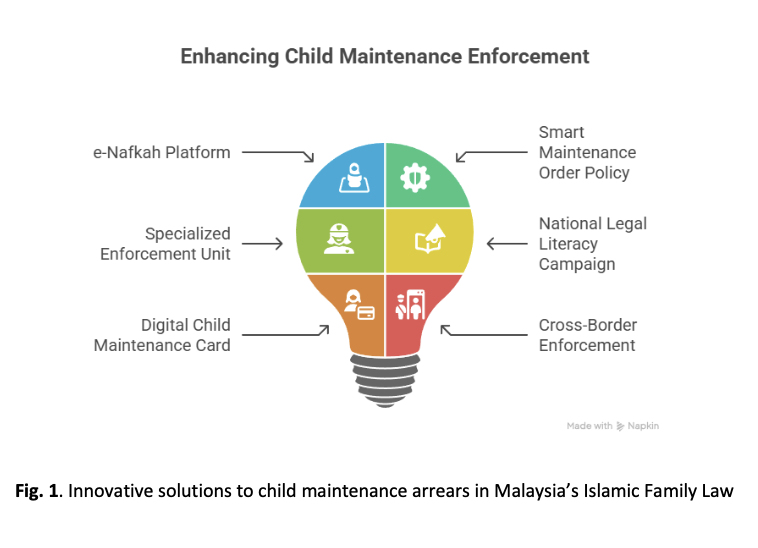Innovative Solutions for Child Maintenance Arrears in Islamic Family Law in Malaysia: A Technological and Holistic Policy Approach
Keywords:
Child maintenance, Syariah Court, children’s welfare, technological solutions, policy reformAbstract
Child maintenance is a critical legal and moral responsibility under Islamic family law, primarily borne by the father. Despite clear judicial orders by the Syariah Court, the issue of unpaid or delayed child maintenance continues to rise in Malaysia, contributing to socioeconomic and psychological hardship for affected children. Traditional enforcement mechanisms have proven to be limited in ensuring consistent compliance. This study explores innovative approaches to resolving child maintenance arrears by integrating technological tools and proposing holistic policy reforms. It identifies the existing Syariah legal framework and enforcement gaps, and further analyses how systemic inefficiencies such as lack of coordination among agencies, outdated procedures, and insufficient digital support contribute to the problem. Adopting a qualitative doctrinal methodology supported by interviews with legal practitioners and analysis of statutes, scholarly works, and media reports, the study highlights the need for transformative change. Among the proposed innovations are the establishment of a centralized digital monitoring system for maintenance payments, automated legal notifications, and inter-agency data integration. In addition, policy suggestions include streamlined court processes and legislative refinement to support proactive enforcement. This article contributes a forward-looking perspective by shifting the focus from reactive enforcement to preventative and technologically enabled strategies. It offers practical insights to lawmakers, Syariah institutions, and policymakers aiming to improve the protection of children’s rights through more effective, coordinated, and sustainable solutions. Ultimately, it seeks to enhance public accountability, restore trust in the legal system, and secure the welfare of children in line with the objectives of Islamic law.









